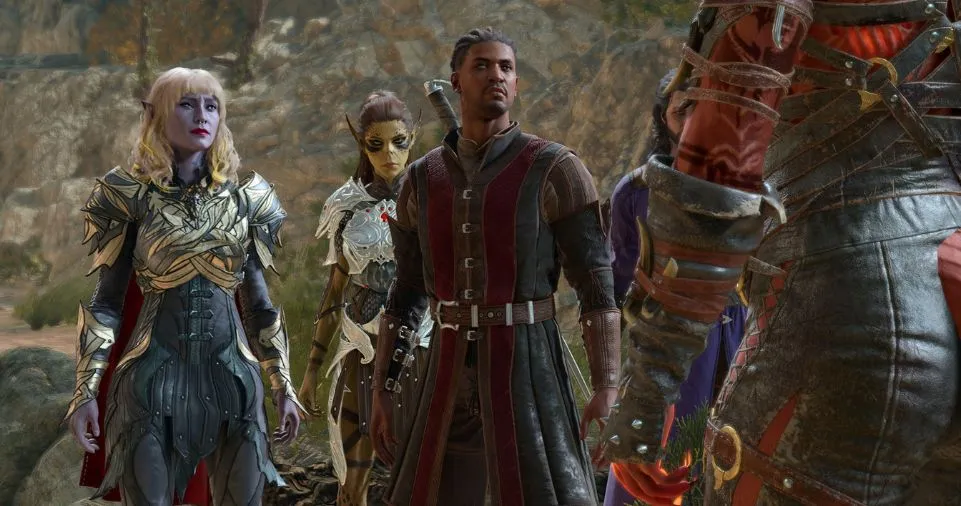Building the best team composition in RPGs is essential for tackling complex challenges, maximizing efficiency, and ensuring success in both combat and exploration.
Whether you’re assembling a squad for intense boss battles or crafting a versatile group for dynamic, open-world scenarios, understanding how to balance roles, exploit synergies, and adapt to various game mechanics is critical.
This guide dives straight into proven strategies and actionable tips to help you create the optimal team composition for any RPG setting. Let’s break down the roles, configurations, and techniques that set your team up for success.
Understanding Team Roles in RPGs
The foundation of any great team lies in understanding character roles. Most RPGs use a system where characters fill specific roles, each contributing to the team’s overall performance. Here’s a breakdown of common roles:
| Role | Description | Examples |
|---|---|---|
| Tank | Absorbs damage and protects weaker teammates. Often equipped with high health and defense stats. | Knight, Warrior, Paladin |
| DPS (Damage) | Focuses on dealing high amounts of damage to enemies. Comes in melee, ranged, or magic variants. | Rogue, Archer, Sorcerer |
| Support | Provides buffs to allies or debuffs to enemies. Enhances the team’s performance. | Bard, Buffer, Enchanter |
| Healer | Focuses on restoring health and curing status effects. | Cleric, Priest, Medic |
| Utility | Covers miscellaneous needs like crowd control, stealth, or environmental interaction. | Thief, Tactician, Engineer |
Step-by-Step Guide to Building the Best Team Composition

Analyze the Game’s Mechanics
- Know the Meta: In online or multiplayer RPGs, understanding the current meta (most effective tactics available) can significantly influence your team composition. Certain character types or combinations may be stronger due to game updates.
- Combat Style: Is the game turn-based, real-time, or a hybrid? For example, turn-based RPGs benefit from highly strategic planning, while real-time RPGs may favor versatile characters.
- Enemy Types: Identify common threats in the game. Are you facing hordes of enemies (favor AoE DPS) or single strong bosses (single-target DPS and sustain are essential)?
Choose a Balanced Core
A balanced core team should generally consist of:
- 1 Tank: To draw aggro and protect squishy teammates.
- 1 Healer: Essential for sustained encounters.
- 1 DPS: For dealing significant damage.
- 1 Utility/Support: To enhance adaptability.
Adapt to Team Synergy
Characters should complement each other’s abilities. For example:
- A Tank with crowd control can pair with an AoE DPS for devastating combos.
- A Support who increases attack speed can amplify a DPS character’s effectiveness.
Diversify Damage Types
Avoid stacking too much of one type of damage (e.g., all physical or all fire magic). Some enemies have resistances, so a balanced damage output is critical.
A good mix might include:
- Physical Damage (e.g., swords, arrows)
- Elemental Damage (e.g., fire, ice, lightning)
- Magical Damage (e.g., arcane spells, dark magic)
ALSO READ: How to Increase FPS and Optimize Performance for Smooth Gaming
Common Team Compositions for RPGs
Depending on your strategy, different team setups can work wonders. Here are a few popular ones:
| Composition | Description | When to Use |
|---|---|---|
| Balanced Team | 1 Tank, 1 Healer, 1 DPS, 1 Support | General exploration, diverse challenges |
| Aggro Focus | 1 Tank, 2 DPS, 1 Healer | Boss fights requiring sustained DPS |
| Burst Damage Team | 3 DPS, 1 Support | Fast encounters or timed challenges |
| Survival Team | 1 Tank, 1 Healer, 1 Utility, 1 Support | Endurance battles where survival outlasts damage |
| Specialized Teams | 4 of the same role (e.g., all DPS, all Tanks) | Specific challenges like damage races or defense-oriented objectives |
Additional Considerations for Team Optimization

Team Formation in Open-World RPGs
In open-world RPGs like The Elder Scrolls or Genshin Impact, flexibility is critical. Players often encounter diverse challenges, requiring a mix of combat, exploration, and puzzle-solving. Key points to keep in mind:
- Include at least one-character adept at solving environmental puzzles (e.g., a mage who can light torches with fire).
- Prioritize mobility. Characters with faster movement skills or teleportation abilities can save time.
- Balance combat strength with utility for non-combat scenarios, such as gathering resources or interacting with NPCs.
Role Rotation in Multiplayer RPGs
In multiplayer RPGs like World of Warcraft or Final Fantasy XIV, team composition becomes a collaborative effort. Tips for success:
- Communication: Discuss roles and strategies with teammates before battles.
- Specialization: Each player should master their chosen role for maximum effectiveness.
- Backup Plans: Be ready to switch roles if someone is unavailable or if the situation demands it.
Tips for Building Effective Synergy
Exploit Buffs and Debuffs
Some characters can increase the party’s damage output or reduce the enemy’s capabilities. For example:
- Buff: A Bard increasing all party members’ attack power.
- Debuff: A Necromancer slowing enemies or reducing their defense.
Maximize Crowd Control
Include characters who can immobilize, stun, or confuse enemies. This is invaluable for handling large groups.
Optimize Healing
Choose a Healer that suits your team’s needs. A Priest might provide steady healing, while a Druid might mix healing with buffs.
ALSO READ: How to Find Secret Locations and Easter Eggs in Popular Games
Avoiding Common Pitfalls
| Pitfall | Solution |
|---|---|
| Over-reliance on a single role | Diversify roles to avoid being overwhelmed by unexpected challenges. |
| Ignoring elemental weaknesses | Study enemy weaknesses and equip characters with appropriate elemental damage. |
| Lack of synergy | Test team combinations to find ones that work well together. |
| Poor adaptability | Include versatile characters who can handle multiple roles in emergencies. |
Advanced Strategies for Team Optimization

Skill Cooldown Management
- Prioritize characters with complementary cooldowns. For example, a Tank might use a taunt skill while a Support prepares an AoE buff.
Building Around a Core Strategy
- Example: For a poison-based strategy, choose characters who synergize with poison (e.g., poison appliers, debuffers, and amplifiers).
Invest in Gear and Stats
- Focus on equipping characters with gear that complements their role. A Tank should prioritize defense stats, while a DPS benefits from critical hit boosts.
Example: Best Team Composition for a Fantasy RPG
Here’s an example of a highly effective team for a typical fantasy RPG:
| Role | Character | Abilities |
|---|---|---|
| Tank | Paladin | High defense, healing aura, taunt to draw enemy attacks. |
| DPS | Fire Mage | AoE fire spells, single-target nukes for bosses. |
| Support | Bard | Buffs team attack and speed, debuffs enemy defense. |
| Healer | Cleric | Heals allies, removes poison and other status ailments. |
This setup balances survivability, damage output, and utility, making it suitable for most scenarios.
Emerging Trends in RPG Team Composition
- AI-Controlled Party Members: Many modern RPGs let you rely on AI to control party members. Optimize AI behavior by assigning roles and prioritizing actions.
- Dynamic Role Switching: Games like Final Fantasy XV let you swap character’s mid-battle. Build a team that allows fluid transitions.
- Role Consolidation: Hybrid roles like Spell blade (Tank + DPS) or Shaman (Healer + DPS) are becoming more prevalent.
ALSO READ: How to Master Stealth in Sneaky Games?
Conclusion
Building the best team composition in RPGs involves balancing roles, diversifying abilities, and adapting to the game’s challenges.
Whether you’re a solo player strategizing your next dungeon crawl or coordinating a multiplayer raid, these principles will ensure your team is ready for any challenge.
By focusing on synergy, role diversity, and preparation, you can conquer even the toughest RPGs with confidence.







